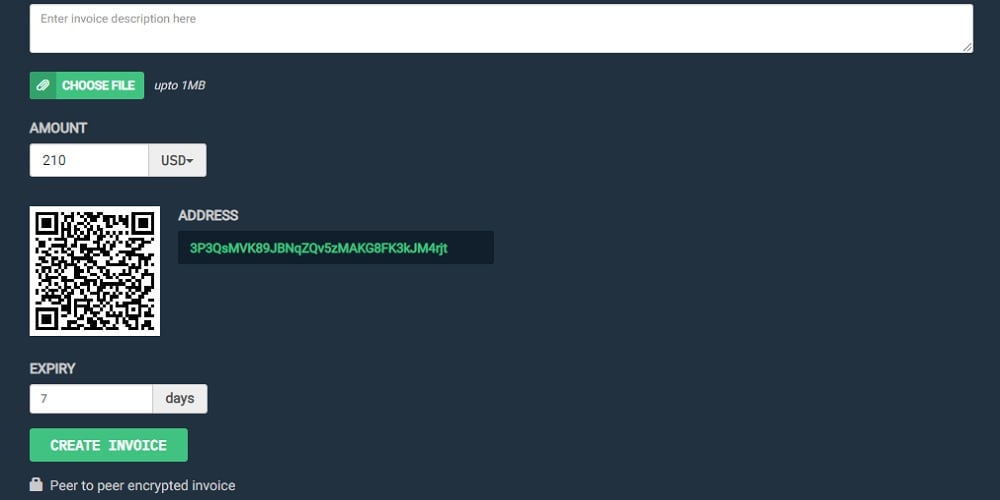
For many companies, entrepreneurs and freelancers working in the crypto industry, accounting is an essential part of their day-to-day business activities. A number of platforms now offer services tailored to meet those needs including features such as cryptocurrency invoicing.
Also read: New Crypto-Friendly Banking and Payment Services Launch in the UK and Russia
Accepting Coins Comes With Benefits
Businesses and professionals accepting digital coins enjoy numerous benefits including fast payments, low transaction fees and no chargebacks. However, crypto finances have their specifics and services developed to address them are needed. Fortunately, multiple online platforms now specialize in providing these including software that facilitates the creation of cryptocurrency invoices.
Gilded is one such platform companies can use to generate and send invoices to customers who wish to pay with cryptocurrency. It enables businesses to receive their payments instantly and directly, without intermediaries or high fees. To take advantage of the service, users need to sign up by providing basic information about their company. They must then choose a base fiat currency and add public addresses for the cryptos they plan to accept under “Add Your Wallets.”

To create an invoice, accountants have to click on “Request Payment” and “Add a New Contact” for each new business partner. To fill out the invoice details, click “Go to Payment Method” and choose “Address and QR Code.” Under “Choose a Currency,” one of four major currencies can be selected – U.S. dollar, euro, Canadian dollar, and Australian dollar.
Items listed on an invoice are priced in fiat currency and the total is converted to cryptocurrency. Users have to select a preferred crypto for each payment. The invoices created with Gilded currently support four coins: bitcoin core, litecoin, ethereum, and dai. When an invoice is sent, both sides receive email notifications. The sender is also notified when a payment is made.
Anypay is a point-of-sale payment system that can be used to generate crypto invoices free of charge. It supports bitcoin cash (BCH) and several other cryptocurrencies, as news.Bitcoin.com recently reported. To create an invoice, merchants need to set up an account using only an email address. They can enable a preferred cryptocurrency option by providing a public address for the respective coin. An Anypay invoice contains the due amount in cryptocurrency, a receiving address and a QR code.

A useful feature for bitcoin cash enthusiasts and merchants is the option to pay the invoices with a simple text massage. That’s possible thanks to the integration with Cointext. The platform allows users to send BCH with SMS and receive bitcoin cash payments to their Cointext wallets. BCH invoices created with Anypay provide a code that can be used to make payments via Cointext even without access to the internet.
Blockonomics is a platform that allows users to create peer-to-peer crypto invoices. The system employs encryption technology to prevent third parties from intercepting and reading the accounting documents. It currently supports bitcoin core and a number of fiat currencies.

To create single use invoices, users don’t need an account. They have to copy a valid BTC address from their wallet, go to the Blockonomics website, paste in the search bar and submit it. Clicking on “Create P2P Invoice” will bring them to a page where they can add a description, input an amount in dozens of fiat currencies and set a number of days before the invoice expires. They’ll be able to view the invoice which has a QR code, or copy a link they can send to their clients.
CD Pay is a digital currency payment gateway that allows companies to create crypto invoices in several steps. Registered users can do so under the “Invoices” tab when logged in to the platform. Clicking “Create Invoice” opens up a page where they can set the amount in local currency choosing among numerous fiat options including EUR, USD, GBP, CAD, AUD and JPY. Then they have to add an amount and set an expiration date for the invoice.

The invoice is saved as a PDF file containing the submitted data which can be sent to customers as an attachment via email. When they open the file, they’ll see several options to make the payment along with information about the expiry date of the invoice and its sender. CD Pay generates QR codes for payments in bitcoin core, litecoin, zcash, and monero. Clients will see all the information they need to complete a transaction including the amount in fiat and the current exchange rate.
A platform called Coinpayments has a section offering registered users the option to create crypto invoices. The feature can be found under “Merchant Tools” on its website. It offers businesses a rich choice of fiat currencies and digital coins they can choose from to request a payment from their customers. The invoice template features fields for a description of the service, the number of the invoice, tax amount, shipping information and cost.
Have you used any of these or other platforms to create crypto invoices? Share your experience in the comments section below.
Disclaimer: Readers should do their own due diligence before taking any actions related to the mentioned companies or any of their affiliates or services. Bitcoin.com is not responsible, directly or indirectly, for any damage or loss caused or alleged to be caused by or in connection with the use of or reliance on any content, goods or services mentioned in this article.
Images courtesy of Shutterstock, Blockonomics.
At Bitcoin.com there’s a bunch of free helpful services. For instance, have you seen our Tools page? You can even lookup the exchange rate for a transaction in the past. Or calculate the value of your current holdings. Or create a paper wallet. And much more.
The post How to Create and Send Cryptocurrency Invoices appeared first on Bitcoin News.

Bitcoin.com is author of this content, TheBitcoinNews.com is is not responsible for the content of external sites.
Our Social Networks: Facebook Instagram Pinterest Reddit Telegram Twitter Youtube










